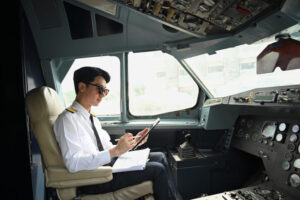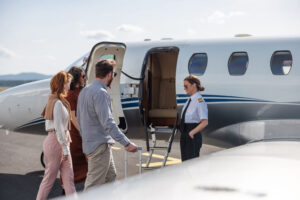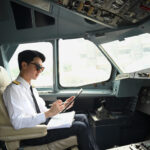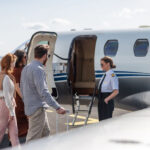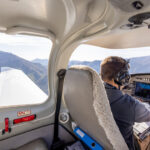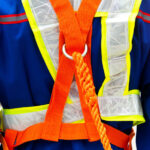How to better maintain a healthy lifestyle
A career in aviation comes with its own set of occupational health risks – including an increased chance of cancer, back issues, and mental health concerns. Consistent preventive measures can greatly reduce the long-term impact of some of the stressors of flight and ensure a longer, healthier career.
Contributing Factors
There is a significant correlation between flying and cancer. Skin cancer is one of the most common cancers discovered in flight crews due to high UV-A radiation exposure. It is estimated that pilots are twice as likely to develop melanoma as non-aviators. In fact, flying for just one hour at 30,000 MSL is equivalent to 20 minutes spent in a tanning bed. The presence of thick cloud layers or snow can greatly amplify the already intense UV rays as well.
Back pain and injury is another prominent health issue pilots may need to address. Flying requires pilots to sit in the same position for extended periods of time. And, unfortunately, many airframe seats offer very limited, insufficient lumbar support. An aircraft’s performance and G forces can all cause additional stress on a pilot’s back.
Mental health problems are often an avoided topic in the aviation community. Sadly, this tends to lead to more issues as people will underplay problems they may have. The nomadic lifestyle typical of most pilots can contribute to existing issues or even result in the onset of new ones. Despite the sometimes negative connotations surrounding mental health assistance, it is imperative that pilots actively seek any help they may need.
Being Proactive
Pilots can help to mitigate health issues that arise from stressors of flight.
It is important to wear sunscreen when flying, regardless of the forecast. Oftentimes the weather changes at altitude or while en route, so it is better to be safe and apply sunscreen every time. Sunglasses and hats can help reduce one’s exposure to dangerous UV radiation as well.
To help prevent back injury, or minimize existing pain, it is recommended that pilots utilize additional lumbar support when available. In fact, there are several support systems designed specifically for flying. Staying active and mobile is key for back health. In long-haul flights, make sure to get up and move whenever you can.
Having a personal or professional support system can help maintain mental health. Spending time with others can help keep alleviate the feelings of loneliness and isolation that many pilots experience while traveling. Making an effort to maintain a healthy diet, exercise and good sleep habits are also shown to greatly contribute to good mental health.
It is important that pilots actively seek help for any health concerns when they arise, if not before. Staying on top of your health and being proactive can help ensure several more years in the sky.
RELATED CTS TRAINING



